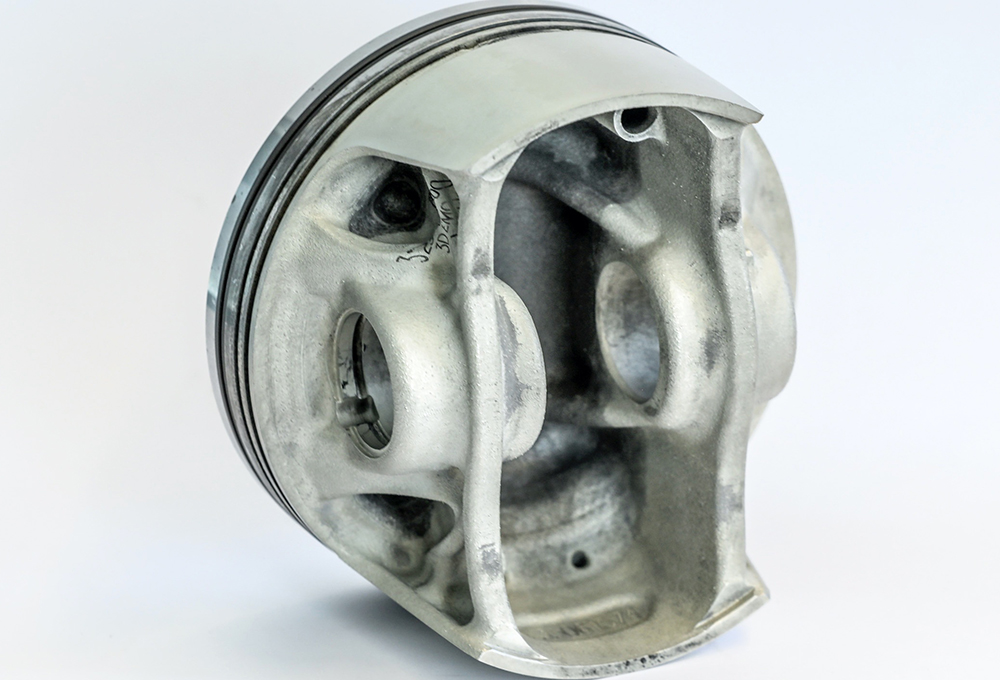Porsche claims the new pistons created with additive manufacturing (AM) techniques for the 911 GT2 RS add 30 horsepower while increasing efficiency.
Working with Mahle and Trumpf, Porsche is using additive manufacturing to increase engine power and efficiency for its range topping 911 GT2 RS.

Additive manufacturing (AM), aka 3D printing, is not new to Porsche. The German manufacturer heavily leverages AM processes in prototyping, and since May 2020, in production for customizable portions of seats available in its 911 and 718 models. Porsche Classic also uses AM to produce plastic, steel and alloy spare parts no longer available, such as the clutch lever in the 959. For the first time however, working with suppliers Mahle and Trumpf, highly-stressed driveline components – in this case pistons in the horizontally-opposed 6-cyl. engine for Porsche’s flagship 911 GT2 RS – are being produced via AM.
According to Porsche, it expects to further leverage AM abilities for low-volume series products such as the GT2 RS, as well as for motorsports. The AM process permits the GT2 RS pistons to be manufactured with a structure optimized for acting loads, resulting in a 10% weight savings versus the series-production forged pistons. The 3D-printed pistons also permit an integrated and closed cooling duct to be built into the piston crown, a cavity that could not have been produced by conventional methods.

“Thanks to the new, lighter pistons, we can increase the engine speed, lower the temperature load on the pistons and optimize combustion,” explained Frank Ickinger from Porsche’s advance drive development department. “This makes it possible to get up to 30 more horsepower from the 700 PS [690 hp] biturbo engine, while at the same time improving efficiency.”
Porsche credits the layer-by-layer AM process for allowing the new piston architecture. The pistons for the 911 GT2 RS were manufactured from high-purity metal powders using the laser metal fusion (LMF) process. LMF uses a laser beam to heat and melt the powder surface to precisely correspond to the component’s contour. Initiated with partners Mahle and Trumpf, the project also uses measurement technology developed by optics specialist Zeiss to verify the integrity of the pistons.

Pistons have been identified as a prime candidate for AM. In addition to Mahle and Trumpf’s work with Porsche, supplier IAV has showcased 3D-printed pistons, as well as advanced-materials specialists such as Oerlikon for the manufacture of pistons for heavy-duty diesel engines. For now, the process shows the most potential for components in low-volume applications.
By
Source: https://www.sae.org
CUT COTS OF THE FLEET WITH OUR AUDIT PROGRAM
The audit is a key tool to know the overall status and provide the analysis, the assessment, the advice, the suggestions and the actions to take in order to cut costs and increase the efficiency and efficacy of the fleet. We propose the following fleet management audit.




